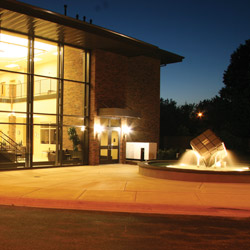Non-Traditional Students Seek Higher Education

What is a non-traditional student? While there are many definitions of non-traditional students, the simplest is those who deferred going to college directly after high school. Most non-traditional students entered the workforce directly after high school, have been raising families, were active in the military or have become dislocated workers. Many students have been flocking to college campuses during these challenging economic times to retrain for an unexpected career change. Midstate College has seen a surge in enrollment in the past year due to the number of dislocated workers, and because of its dedication to serving these students.
For an adult returning to college, the mere thought of getting started can often be daunting.
Midstate College’s average class size is eight students, the average age is 33, and the faculty to student ratio is 11:1. Those statistics are what turn prospective students seeking retraining into new students. Our students and graduates often praise the personal attention and family-like atmosphere that is unparalleled at other institutions in our community. Midstate College has made getting started on a new educational venture as simple as possible. Prospective students are linked with qualified admissions representatives starting with the inquiry process. Each is given the opportunity to schedule a one-on-one admissions interview to discuss academic program selection, course scheduling, financial assistance options and other general questions.
Non-traditional students have different needs than traditional students. This student body desires alternative scheduling that includes courses in the evening, on the weekend or online. Online education has made going back to school a possibility for many students who are balancing busy schedules. At Midstate College, online courses have gained popularity over the years, with students taking an average of 1.8 courses online each quarter. The Bachelor of Business Administration degree is available entirely online. Students can also take classes in the evening; each night class meets one night a week. This makes it possible for a student who works throughout the day to attend part-time by only coming to campus two nights a week. Midstate College students who postponed attending college until their children begin school find the traditional day classes accommodating.
Non-traditional students view education as an investment, with affordability a number-one concern. State funding changes and complex federal paperwork have made financing education a task. Midstate College makes every effort to ensure that this process is made simple. Once an application is submitted, the new student will be scheduled to meet with a financial assistance officer. During this appointment, the application for financial assistance (FAFSA) will be reviewed and eligibility determined. If a student’s tuition is paid by his or her employer, Midstate defers all tuition and book charges until the student receives reimbursement.
When a traditional student attends college, one of the most important parts of his or her experience involves social activities, which help students feel more connected to the college and aid them in persisting to graduation. It is difficult for non-traditional students to become socially engaged when they often attend part-time and are juggling full lives outside of the classroom. It is a challenge for every college that serves an adult population to develop student activities that will appeal to those particular students. Midstate College offers free events throughout the year that these students can attend with their families. Most recently, an all-school carnival was held in June and had approximately 200 students and families in attendance. iBi
» Midstate College is located at 411 W. Northmoor Road in Peoria. For more information about programs and services, visit midstate.edu or call 1-800-251-4299. Registration is currently open for the fall quarter beginning on August 16th.

